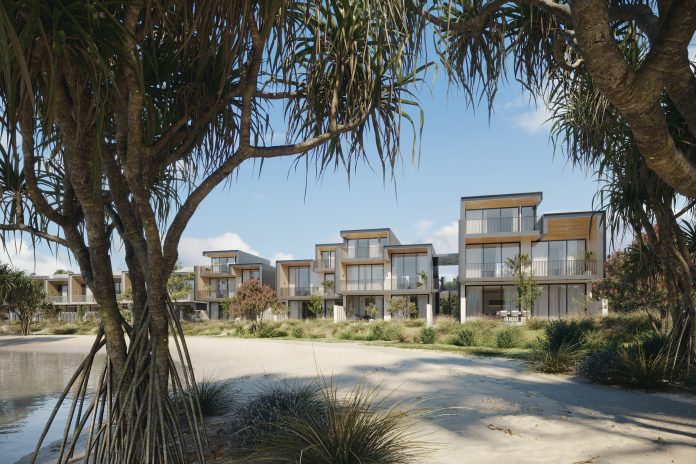Australia’s top footy players may have found a new ‘habitat’ for themselves after living as pandemic refugees on the Sunshine Coast while their own state was in lockdown.
NRL and AFL stars from Melbourne clubs have made enquiries about buying into the $50 million resort-style development Habitat, at Twin Waters.
The release of stage two is being fast-tracked due to intense interest after Stage 1 almost sold out within months when released in December (only three properties of 21 remain).
McGrath head of projects Jo Prince-Gillies said stage two, which was originally to be released towards the end of 2021, would be announced within a matter of weeks.
It includes a mix of beach houses tucked behind a quiet stretch of Mudjimba beach and townhouses with their own plunge pool.
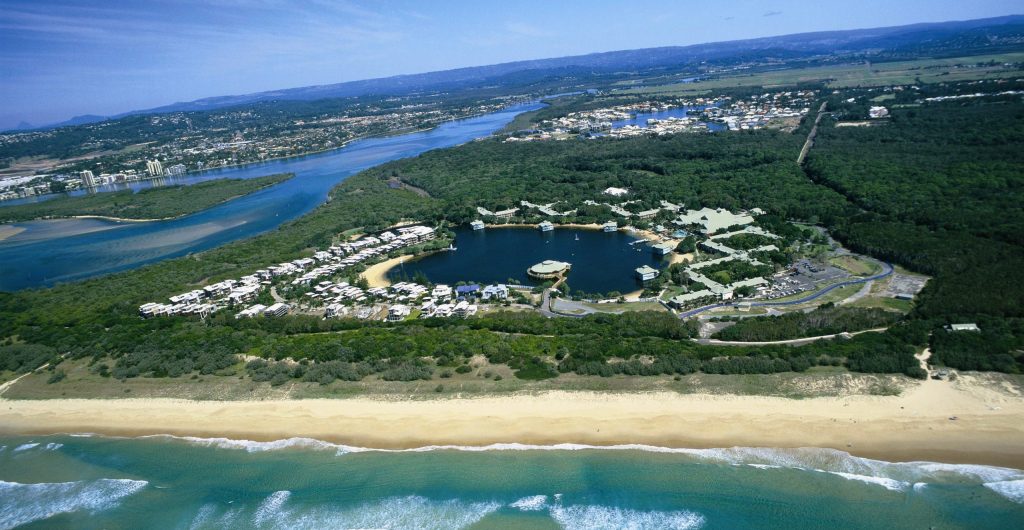
The Habitat housing development is located within Novotel Sunshine Coast Resort which gives residents access to the resort facilities such as gym, mini golf, pool and spa and water sports on the lagoon.
And while most buyers in the $20 million stage 1 have been from the Sunshine Coast, especially retirees looking for easy living, there has been high-profile interest from interstate for the next stage.
The Novotel resort became the base for Melbourne Storm players, staff and their families from July and the AFL teams Collingwood, Essenden, Footscray and North Melbourne while their own home state was battling a coronavirus outbreak.
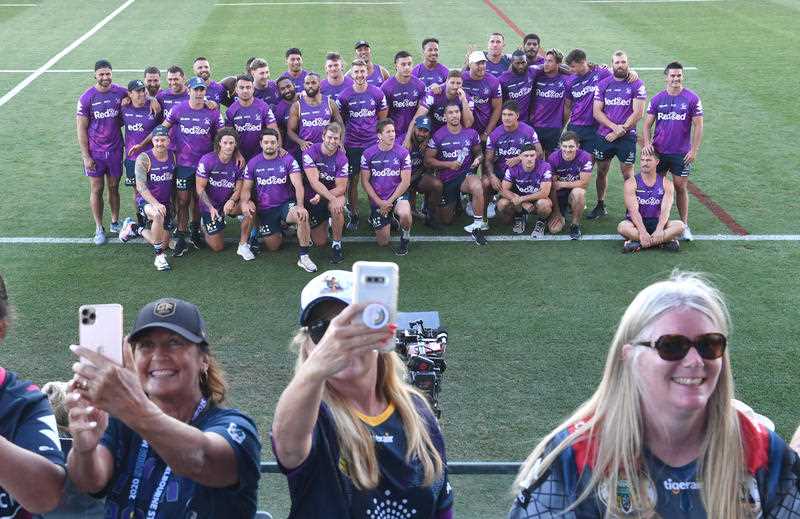
Ms Prince-Gillies said the freedom, sun and sand on the Sunshine Coast compared favourably to the cold lockdown of Melbourne and had heightened the appeal of becoming an owner.
She said players were sharing photos of their enviable lifestyle with family and friends and the media attention which inevitably follows sporting stars had placed the resort in the national spotlight.
“We have had interest from players in stage two,” confirmed Ms Prince-Gillies.
Shakespeare Property Group general manager of investments Robert Anderson said stage two was progressing “as quickly as possible”.
Mr Anderson said it would include a combination of beach houses and townhouses, but the final details were yet to be confirmed.
Prices would start at about $1 million in stage two, compared to the cost of buying into stage 1 which was an average $850,000 (and low body corporate fees of $2500 to $3000 a year).
“We’re looking at 28 dwellings: townhouses and apartments with a backyard and plunge pool plus detached houses on compact blocks and close to the beach,” Mr Anderson said.
“It will be all about the beach lifestyle only 50m from the sand and an underutilised surf beach.”
He said as well as owner-occupiers, the Habitat development was perfectly located near the Sunshine Coast Airport for ‘lock-and-leave’ investors.
“Sydney and Melbourne people can jump on a plane and after five minutes in your car you’re at your house with the surf board in the garage,” he said.
“It’s a pretty good lifestyle enhancement for people who live in cold-weather places like Melbourne.”
Get more local stories by subscribing for our FREE daily news bulletin. See SUBSCRIBE at the top of this article
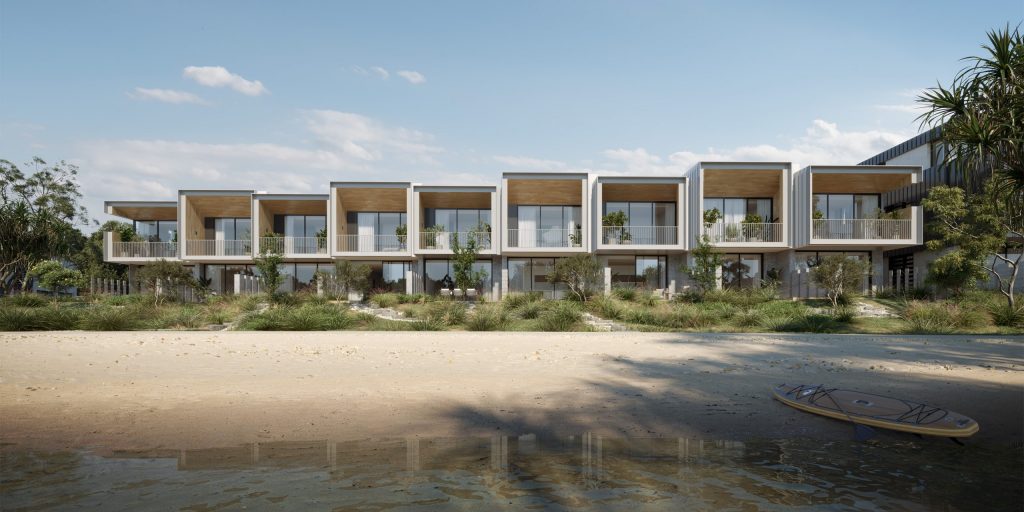
The Shakespeare Property Group bought the hotel for $100 million in 2018 with the intention of upgrading and positioning it as a leading business events venue and leisure resort.
Mr Shakespeare said about $15 million had been spent on refurbishing the tired hotel lobby which was still in its original state, building a new Sunshine Coast Convention Centre which opened in May and creating a dedicated AFL oval.
About half of the hotel’s 370 rooms were undergoing a revamp to the tune of $4 million while the bungalows on the resort’s central lagoon had also been upgraded.
Mr Anderson said the facilities were primed for the anticipated resumption of conventions and exhibitions which had stopped during the pandemic.
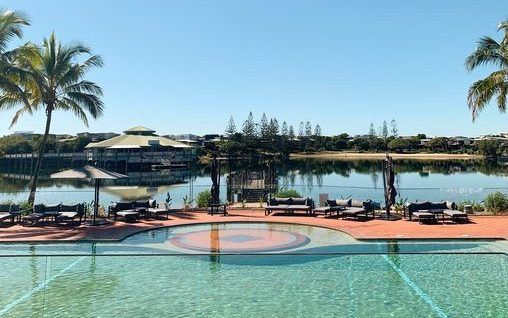
“We’re building a pipeline of state-based conferences but it does have the capacity to do national and international corporate and other events of that scale,” he said.
“We need consistency on borders and we think that time is coming. There will be pent up demand in the conference market and they will come back.”
Mr Anderson said the new AFL oval would attract more interstate teams and local clubs and become a popular facility.


